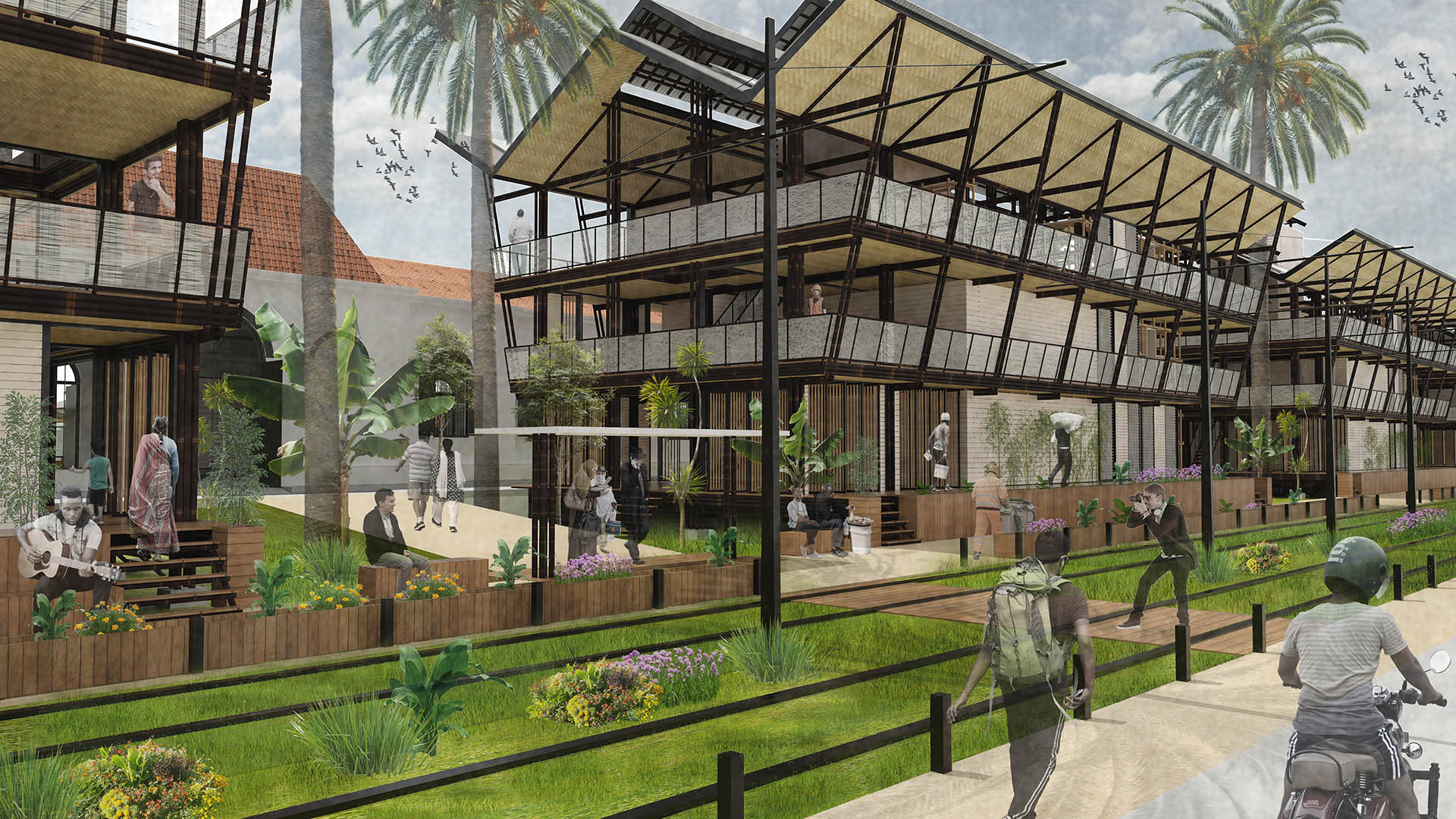Electra Pangalou
Heritage & Architecture

KNIL Magazijnen, The Creative and Learning Cluster of Plastic Waste: An alternative approach to heritage adaptive re-use in Bandung, Indonesia
The transformation of “KNIL Magazijnen” into a creative and learning cluster of plastic waste is an attempt to explore the boundaries of heritage adaptive re-use in Bandung, Indonesia, through the design of an inclusive and healthy environment, where social and environmental challenges can be addressed in a more integrated, culture/community-based way.
In Bandung, social segregation between the formally structured communities and the more organic kampung villages dominates the cityscape, strongly contributing to urban challenges like environmental pollution. By understanding the context and putting the people and their needs first, heritage adaptive re-use can contribute to more resilient cities in environments like this.
The project unfolds with the integration of a plastic waste recycling cycle combined with a more communal environment, with creative spaces and educational facilities that not only make people aware of the waste issue, but also allows waste to become part of the daily routine. This enables people to explore the possibilities around the re-use and up-cycling of waste and thus generates business opportunities for all.
The project explores the relationship between waste and people, between working and public environment, openness and enclosure. On a city scale, the former railway is transformed into a new tramline accompanied by a green belt. On a neighbourhood scale, the KNIL Magazijnen offers new possibilities, while, on a building scale, the integration of design and technology allows the materialisation of the interventions in a flexible and adaptable way so as to enhance the qualities and prolong the life of the existing monument.